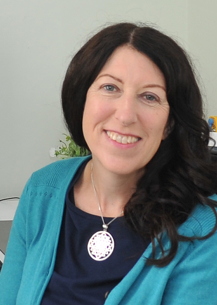
Reclaim Your Power: Healing Trauma & Moving Beyond Disassociation
Reclaim Your Power: Healing Trauma & Moving Beyond Disassociation

Embark on an enlightening journey through this blog, "Reclaim Your Power: Understanding Disassociation in the Face of Trauma."
Delve into the reasons behind why disassociation occurs during traumatic experiences and explore the path towards reclaiming your strength and empowerment.
BEING IN A DISASSOCIATED STATE
When we encounter a traumatic experience, we can enter a state of disassociation.
What exactly is disassociation, and how does it serve us?
Disassociation is a natural response to trauma, a way for us to handle intense emotions.
It's a state where we mentally disconnect from our thoughts, feelings, memories, and even our own identity.
At times, it might even feel like the event never really took place.
In this way, the trauma becomes buried, leaving us bewildered, yet the symptoms linger.
Even if we manage to recall the event, it's as though we weren't present ourselves; it's similar to watching a movie of someone else.
However, this act of suppressing trauma prevents us from fully engaging with the present and progressing towards a future that feels secure and boundless.
WHY DISASSOCIATION IS USEFUL
This is a coping mechanism, it's a survival strategy used during periods of extreme stress or danger.
It creates a mental barrier between ourselves and the traumatic event, allowing us to function despite experiencing a flood of emotions.
This is valuable in situations that require quick action, such as jumping into a river to save someone's life.
Dissociation enables a person to act decisively without being paralysed by fear or distress.
Our survival instincts kick in, and we either freeze, numb feelings, hide or get the fight or flight response.
Disassociation also creates a new route or neural pathway around the trauma which means we don’t have to revisit it or do any healing.
The issue is we think we’ve healed the trauma when really we’ve locked it deep inside and are refusing to acknowledge it.
Nevertheless, the core trauma remains ingrained, and eventually, circumstances will happen that directly trigger it.
This activation could come from a similar situation, such as encountering a form of abuse, or it might manifest as a recurrence of the original event.
For instance, consider a scenario where you had an alcoholic father who inflicted physical harm during your childhood. In adulthood, you might unconsciously attract a partner with alcohol-related issues who, one night, is violent towards you.
To heal completely, the underlying trauma has to be addressed. However, what if disassociation has taken place and the memories are inaccessible or having to re-live those painful memories seems overwhelmingly distressing?
Fortunately, there are numerous ways to explore the trauma without having to re-live a painful past.
And in cases where dissociation has occurred, we can work with the subconscious which involves observing the trauma as if it were a movie happening to someone else, enabling us to gain a different perspective and paving the way for healing to take place.
When engaging with trauma, such as during a therapy session, signs of dissociation become evident.
These signs include selective hearing, an inability to absorb spoken information, physical discomfort, distractions, restlessness, fidgeting, irritability, or even directing aggression towards the person providing assistance.
Such indicators unmistakably point to the suppression of a significant traumatic event, as the mind resists revisiting it due to its distressing nature.
It's important to note that suppressed trauma will come up in other ways.
In certain cases, the trauma might have become an integral part of your identity, and releasing it would mean having to adapt to a new sense of self without that traumatic experience.
This phenomenon is known as "secondary gain," where the trauma shapes a person's entire life and self-perception.
Secondary gain can play a powerful part in wanting to hold onto the trauma, especially when it forms part of the identity.
However, when this gain is explored and the person is finally able to let it go, it may make them feel like they've lost who they are and they may need to grieve for their old identity as these feelings of pain, stress and tension is all they’ve ever known.
SECONDARY GAIN
Secondary gain means
We have more to lose than we have to gain
So it becomes difficult to let go of the trauma. For example, if you thought you'd lose your sense of identity without your trauma then why let it go for a sense of peace?
This is all wrapped up in an entanglement of false beliefs.
For example, I believed that 'commitment meant loss of freedom' and as freedom is my biggest value, my subconscious kept me single for nearly two decades even though I wanted desperately to get married and have children.
My secondary gain was I got to keep my freedom rather than get what I wanted.
Now of course, commitment doesn't equal loss of freedom, and once I unravelled this I was able to move forward, and get married and I've never felt more free to be and do what I want.
So, the secondary gain is like a puzzle that makes healing seem hard because we think we're protecting something important.
But often, when we examine these ideas, we see that they aren't as true as we thought. This can help us overcome the obstacles that stop us from healing and growing.
HOW TO RECOGNISE HIDDEN TRAUMA
A trauma might be triggered by something you witness or hear in your surroundings. It could even involve other people's experiences or actions that evoke emotions or stress within you.
While we can all empathise with others during tough times, there's a distinction when you find yourself profoundly impacted or distressed by it over an extended period.
As mentioned earlier, the process of disassociation from trauma could result in recurring patterns. You might notice yourself repeatedly encountering similar situations. For example, someone repeatedly attracting abusive partners might be echoing the challenges of their difficult upbringing.
This occurs because our subconscious tends to lean toward the familiar. It seeks out what it knows and considers secure, even though its main purpose is to ensure our survival and safety. Opting for the known feels more secure than confronting the uncertainty of the unfamiliar.
At times, we might experience the effects of the trauma in various ways, like persistent negative thoughts or, when we become conscious of the incident, releasing suppressed negative emotions.
This is indeed a positive sign, as it indicates that we've moved beyond the state of disassociation from the trauma. We're enabling it to flow through us, thereby assisting in integrating the emotions we've harboured for a long time.

THE POWER OF FORGIVENESS
Forgiveness isn't about excusing someone's actions; it's about finding peace and understanding.
It means releasing something you've been holding onto, even if you didn't realise it, and allowing yourself to move forward.
Forgiveness = Strength
Your past is a story that's not happening anymore. But it stays alive when you share it with others and hold onto it because it's become part of who you are.
It's a story of how you survived, how you overcame something.
However, when you keep holding onto it, you haven't fully moved forward.
And it can be tough to let go when it's tied to your identity.
Remember, you are not defined by your trauma. You are much more than that.
Letting go of the Story = Empowerment
If you suspect that you might be experiencing disassociation and require assistance in uncovering and releasing your trauma, please reach out and get in touch.
Sending you lots of love,
Rebecca
xx
have a chat about what you need

Book a FREE 30 Minute call for us to have a chat about what you need

Subscribe for more...
For more content, the latest news, offers and events, complete your details below. Your data will be treated with full respect and in accordance to our privacy policy.
What are your thoughts about this blog?
Reclaim Your Power: Healing Trauma and Moving Beyond Disassociation
Connect with me
Email: rebecca@energywaves.co.uk
Phone: +(0)7795 291021

